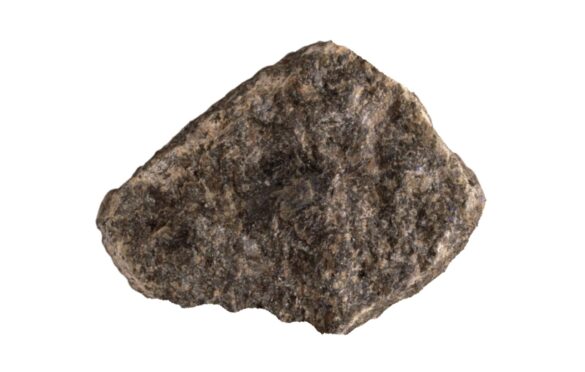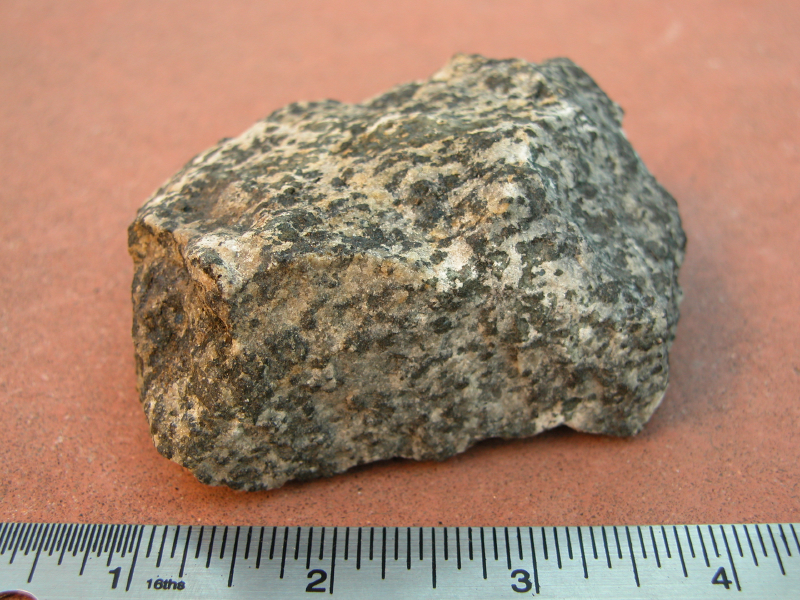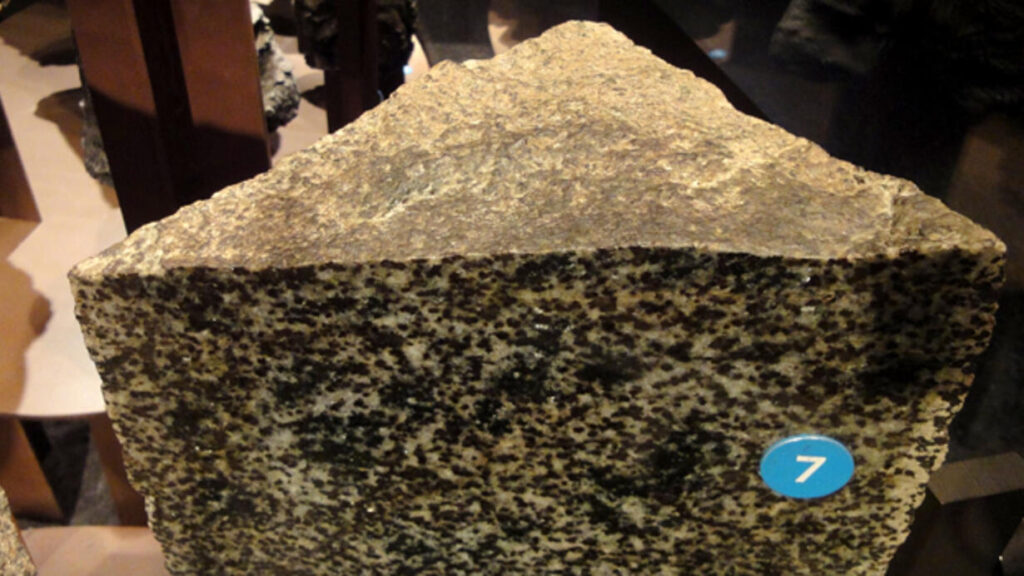Norite

Introduction
Geology enthusiasts and experts alike are constantly intrigued by the diverse range of rocks that make up our Earth’s crust. One such remarkable rock is “Norite.” In this comprehensive guide, we will delve deep into the world of Norite, exploring its composition, texture, origin, and various applications. Join us on this geological journey to uncover the secrets of Norite.
What is Norite?
Norite is a fascinating rock with a mafic composition, containing less than 55 percent total silica. Its composition primarily consists of plagioclase feldspar and pyroxene, setting it apart as a distinctive variety of gabbro.
However, what truly distinguishes Norite is the dominance of orthopyroxene over clinopyroxene within its mineral composition. In certain variations, you may also find traces of olivine, further enhancing its geological allure. Additionally, biotite mica, hornblende, and cordierite can occasionally be found within Norite formations.

Textura Norite
Norite boasts a distinct granular texture, characterized by its coarse-grained structure. This unique texture often gives rise to layered patterns, making Norite a visually captivating rock to study and admire.
Origin of Norite
Forms by the freezing of magma in a plutonic environ ment. Norite is associated with larger mafic igneous bodies and is often found in layered igneous intrusions; different rock types may form within one intrusion by a separation of their mineral content, often due to the effects of gravity settling.
Group: IGNEOUS
Origin: Intrusive
Grain size: Medium
Crystal shape: Anhedral, Euhedral
Classification: Mafic
Occurrence: Pluton
Color: Dark
Applications of Norite
Norite may be a geological wonder, but its practical applications are equally fascinating. Let’s explore some of the key uses and applications of Norite in various fields:
1. Construction and Architecture
Norite’s durability and attractive appearance make it a popular choice for construction purposes. It is often used as a dimension stone for cladding buildings, paving, and creating decorative elements in architectural designs.
2. Monumental Sculptures
The aesthetic appeal of Norite, coupled with its ability to withstand weathering, makes it an excellent choice for sculptors. It has been used to create stunning monumental sculptures that stand the test of time.
3. Countertops and Interior Design
In the realm of interior design, Norite is prized for its use in countertops, tabletops, and flooring. Its rich colors and unique patterns enhance the visual appeal of residential and commercial spaces.
4. Jewelry
Norite can also be polished and used in jewelry making. Its dark colors and intricate textures create distinctive pieces that are cherished by collectors and jewelry enthusiasts.

Worldwide Production of Norite
To gain a better understanding of Norite’s global presence, let’s take a look at its production statistics based on available data:
| Region | Norite Production (Tons) |
|---|---|
| North America | 1,200,000 |
| Europe | 900,000 |
| Asia-Pacific | 750,000 |
| South America | 500,000 |
| Africa | 1,800,000 |
| Oceania | 100,000 |
Please note that these figures are approximate and may vary over time due to geological factors and mining activities.
Here are some locations where Norite production occurs:
- North America: Norite is produced in various regions of North America, including the United States and Canada.
- Europe: European countries like Norway, Sweden, and Finland have active Norite production sites.
- Asia-Pacific: Countries in the Asia-Pacific region, such as China and India, also contribute to Norite production.
- South America: Some South American nations, like Brazil, may have Norite production facilities.
- Africa: Africa is a significant producer of Norite, with countries like South Africa being prominent in Norite mining.
- Oceania: In Oceania, countries like Australia may have limited Norite production.
Please note that the availability and scale of Norite production can vary within these regions, and specific production sites may change over time due to geological factors and economic considerations.
Conclusion
In conclusion, Norite stands as a captivating geological wonder with its unique composition, texture, and wide range of applications. Whether it’s adorning architectural marvels, being shaped into monumental sculptures, or enhancing the beauty of interior spaces, Norite continues to leave its mark on both the geological and human world. As we’ve explored its origin, classification, and utilization, we’ve uncovered the multifaceted nature of this extraordinary rock. Norite’s presence in the Earth’s crust serves as a reminder of the marvels that lie beneath our feet, waiting to be discovered and appreciated.
